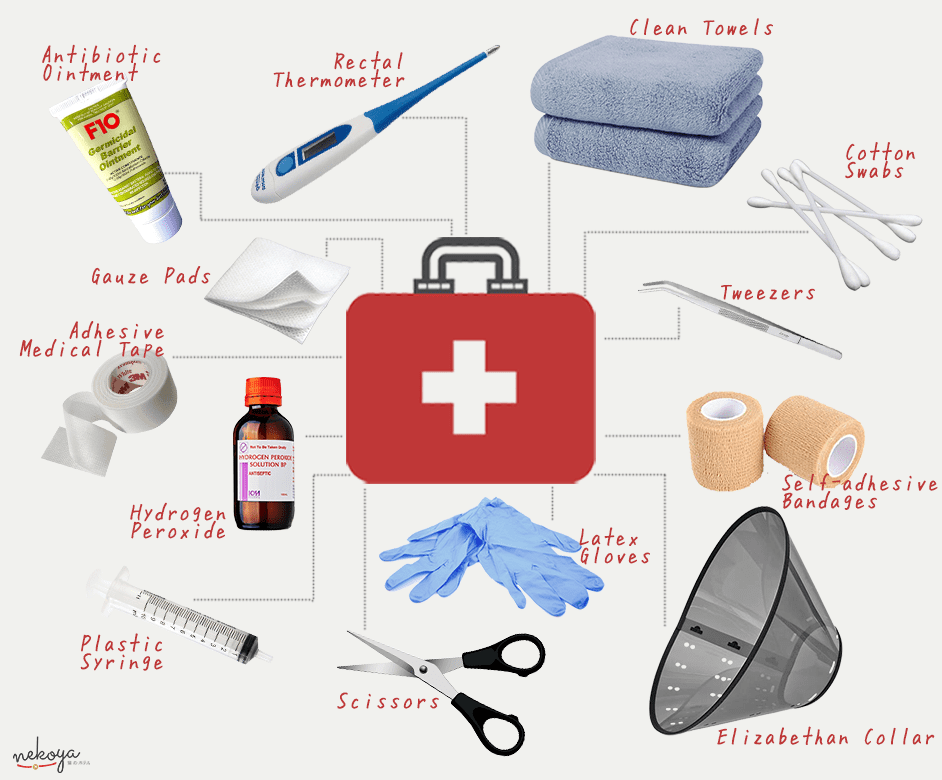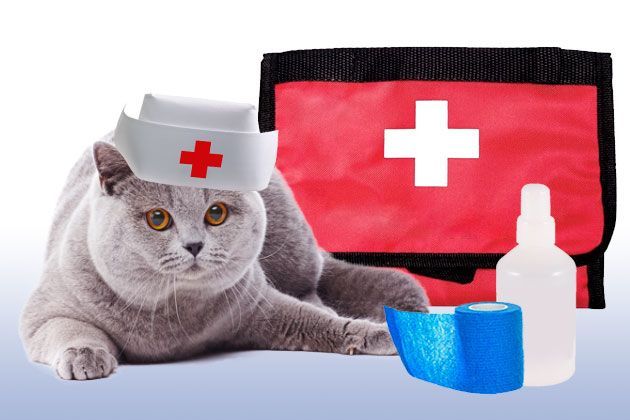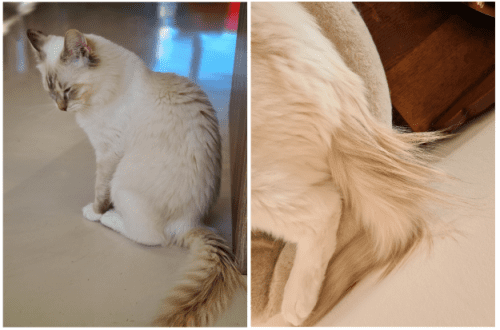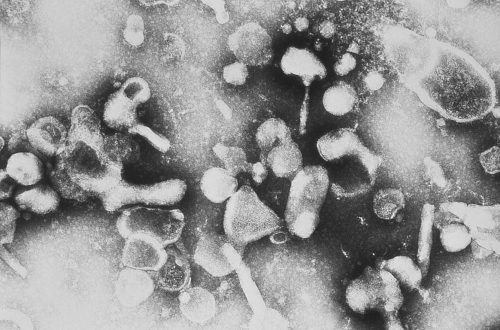
First aid kit for a cat

How to complete a first aid kit for a cat owner so that everything you need is always at hand?
Contents
Treatment of wounds, scratches, cuts, skin diseases, dressings.
- Chlorhexidine, suitable for painless treatment of external lesions, as well as mucous membranes.
- Saline solution in sterile packaging – for washing wounds and cuts, treating mucous membranes.
- Levomekol ointment is an antibiotic-containing ointment. Other options are Baneocin, Bepanthen, Dexpanthenol, Ranosan powder and ointment.
- Chlorhexidine shampoo, Stop itching (prescribed by a veterinarian).
- Gauze sterile wipes and dressings-bandages, cotton pads and sticks.
- Bandage tape, silk or paper, holds well, but does not adhere as strongly to the coat and can be removed without pulling out the coat.
- Adhesive bandage or mesh bandage to secure and protect dressings.
! Iodine, brilliant green, hydrogen peroxide and zinc ointments should not be used, it can be dangerous for burns and poisoning.
For disorders of the gastrointestinal tract and poisoning
- Sorbents – activated carbon, Enterosgel, Smecta, Polysorb.
- Probiotics – Viyo, Vetom to restore digestion.
- Vaseline oil for constipation, apply in small quantities.
Medicines that relieve pain
- Loxicom. Convenient suspension for cats, anti-inflammatory, antipyretic, for muscle and joint pain, high fever, rehabilitation after surgical operations.
- Petkam. Tablets to relieve pain and fever.
Before using drugs for pain, a mandatory consultation with a veterinarian is necessary. ! Some drugs – paracetamol, aspirin, ketoprofen, ibuprofen, naproxen, are strictly prohibited for cats, they pose a danger to health and life. No-shpu is used, but only on the recommendation of a veterinarian, an overdose is dangerous with the likelihood of pain shock and paralysis of the hind limbs.
Sedatives
- Fiteks, Kot Bayun – herbal preparations, have a mild sedative effect.
- Stop stress – with severe stress, it is applied for a short time.
- Relaxivet – in various versions of the release (drops, collars, diffusers, sprays).
- Sentry, Feliway – preparations with pheromones are used a week before the expected stress.
Hygiene products for prevention
- Ear cleaning lotion
- Lotion or eye wipes
- Toothpaste (gel, spray)
- Preparations for external and internal parasites
Tools
- Scissors with rounded tips. With their help, you can cut like wool around the wound, without fear of injuring the skin.
- Tweezers are anatomical (medical). It will help with the extraction of splinters and the treatment of minor injuries.
- Elizabethan collar. It will not let the cat reach out and lick the damage, it should fit well in size.
- Cat muzzle and/or fixation bag for increased aggression during treatments and medications.
- Electronic thermometer with flexible tip. For measuring temperature rectally.
- Syringes in several sizes.
- Tick twister (tiktwister).
- Syringe.
- Tablet-giver (introducer). If the cat does not want to swallow the tablets or has an aggressive reaction, avoid biting.
- Pipette.
- Flashlight with bright directional light. Allows you to carefully examine the damage, including the ears and mouth.
- Absorbent diapers.
- Gloves.
The list can be replenished depending on the appointments of the veterinarian and chronic diseases of the animal. The main thing is not to harm the pet, even through ignorance or negligence. An insufficient dose of the drug will not work, and an overdose, as well as attempts to self-diagnose and treat, are fraught with complications and even death of the animal. If the medicine is stored incorrectly or expired, it may be ineffective, and sometimes cause severe allergic reactions or poisoning. Ignorance of the method of using medicinal solutions, an incorrectly made injection or dropper will lead to unpleasant consequences. For example, administering intramuscular or intravenous drugs subcutaneously can lead to tissue inflammation at the injection site. You can always ask the veterinarian to show and tell you how to use these drugs correctly. Therefore, it is important to properly store the drugs in your first aid kit, regularly check their expiration dates and follow the instructions of the veterinarian. Visiting the veterinary clinic twice a year for a routine check-up will help determine the health status of your pet and identify possible problems at an early stage.





